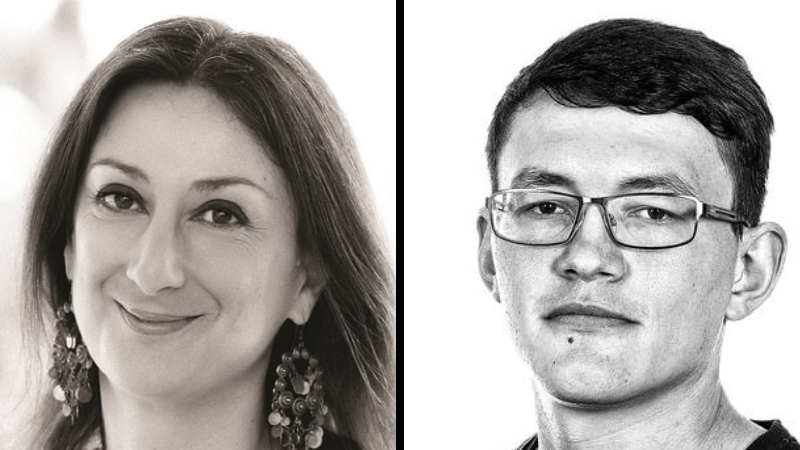Two investigative journalists are murdered in two European countries. Both are killed because they are journalists. Both journalists were investigating corruption at the highest levels and links between politicians and organised crime. Both murders shocked the international community. But the similarities end there.
Daphne Caruana Galizia and Jan Kuciak. The former murdered in a car bomb in Malta, the latter shot in his own apartment with his girlfriend in Slovakia.
The Slovak Prime Minister’s resignation contrasts sharply with the Maltese Prime Minister Joseph Muscat’s refusal to shoulder any responsibility whatsoever for Caruana Galizia’s murder.
His Slovakian counterpart, Robert Fico offered to resign, under pressure from the opposition for his handling of the murder. This in no way implies that Fico was directly responsible for the murder.
In all probabilities, had Fico enjoyed the same Parliamentary majority enjoyed by Muscat, he would have never tendered his resignation. The nature of Fico’s government, a coalition of three parties, is the determining factor in his decision to resign.
But what is most intriguing is the stark difference between the reaction of the people in the two countries.
Some 50,000 Slovaks took to the streets to demand Fico’s resignation. Kuciak’s work and murder have rekindled public frustration with the Slovakian government’s failure to tackle corruption and cronyism.
Protestors are calling for “a new trustworthy government with no people who are suspected of corruption.” Slovaks are sending a clear message to Fico and the country’s authorities. “We don’t trust them to guarantee an independent investigation. They have failed to investigate all previous scandals,” one Slovak protestor said.
In contrast, the demonstrations organised in the wake of Caruana Galizia’s murder only attracted a few thousand people with the organisers – Civil Society Network – accused of being Nationalist Party agents.
In Slovakia people are angry and are calling for Fico’s head. In Malta Muscat’s trust rating surged.
In Slovakia universities let students out early to join the protests and one of the country’s largest banks, Slovenska Sporitelna allowed its employees to leave work early to take part in the demonstrations.
In Malta, people were warned not to join the protests otherwise they would be fired from their job.
In Slovakia, the interior minister Robert Kalinak stepped down, saying “I will do much more for the investigators and their ability to work in peace if I resign.”
In Malta, the home affairs minister Michael Farrugia said Caruana Galizia was somewhat “unlucky” because the bomb in her car killed her. In the meantime, the investigations into the murder are led by the spouse of a government minister.
Both countries are in the eye of the storm given the strong presence of the Italian mafia and corruption involving ministers and top government officials.
Kuciak’s last, unfinished story was about the activities of the Italian mafia in Slovakia and their links to people close to Fico, whose government is also linked to other corruption scandals.
One day after Caruana Galizia’s murder, the Guardian carried a scathing editorial in which it said “The charge is that Malta is turning into a state run by, and resembling, organised crime – which does not govern but disposes of positions, wealth and troublesome persons. Malta cannot be a sham EU state where elections, the rule of law and the courts are just for show.”
However, while thousands are calling for the Slovakian government’s resignation, Muscat’s popularity remains on an upward trajectory despite refusing to sack a minister and chief aide who held offshore accounts.
People who dare call for justice and are in no mood to relent in their criticism of the corruption and impunity gripping Malta are arrogantly dismissed as the ‘Daphne crowd.”
Trying to rationalise these differences is no easy task. It could be down to the lack of critical thought or the tribalism which has infiltrated every sphere of life.
The complete occupation of the State by the two traditional parties in Malta is at the root of all ills in society. From the education system which mass produces flag waving partisans who vote according to their short-term materialistic needs to the lack of critical thought which is often replaced by a neofeudal worldview.
But I guess all is fine as long as the economy grows. As the hackneyed Charles Dickens quote goes; “It was the best of times, it was the worst of times…”












